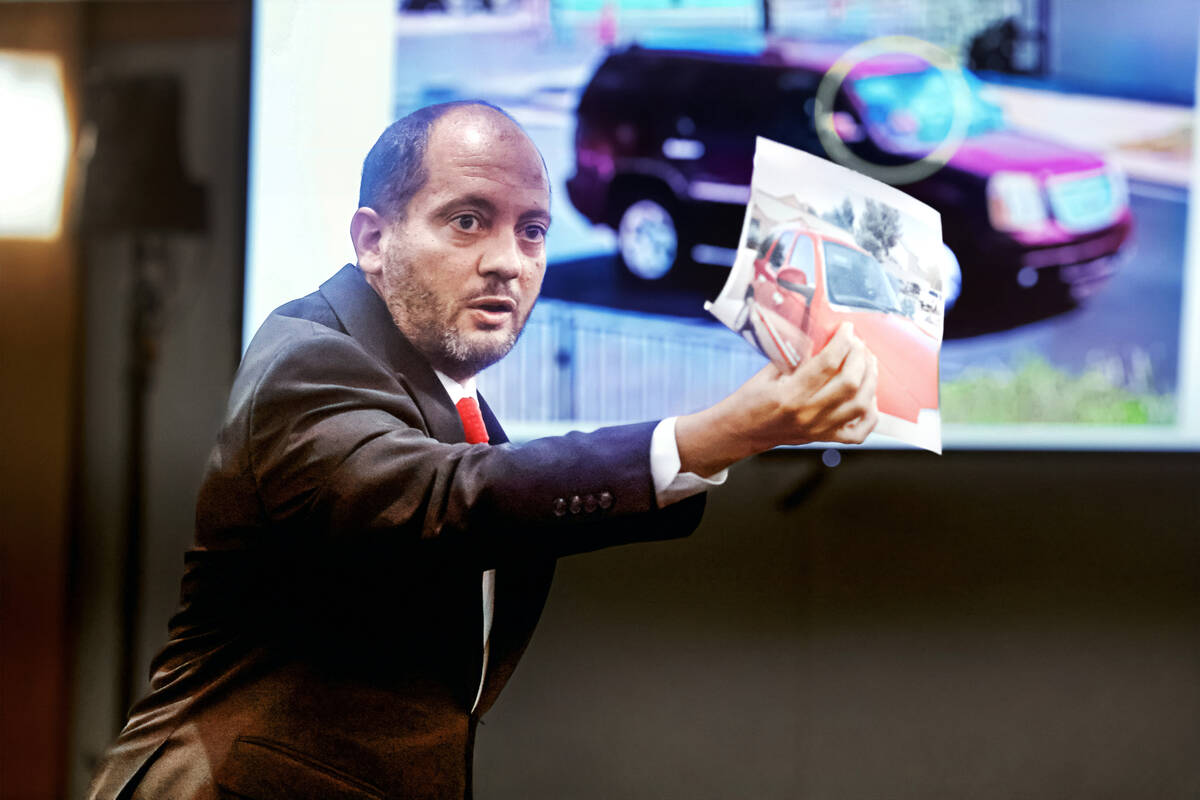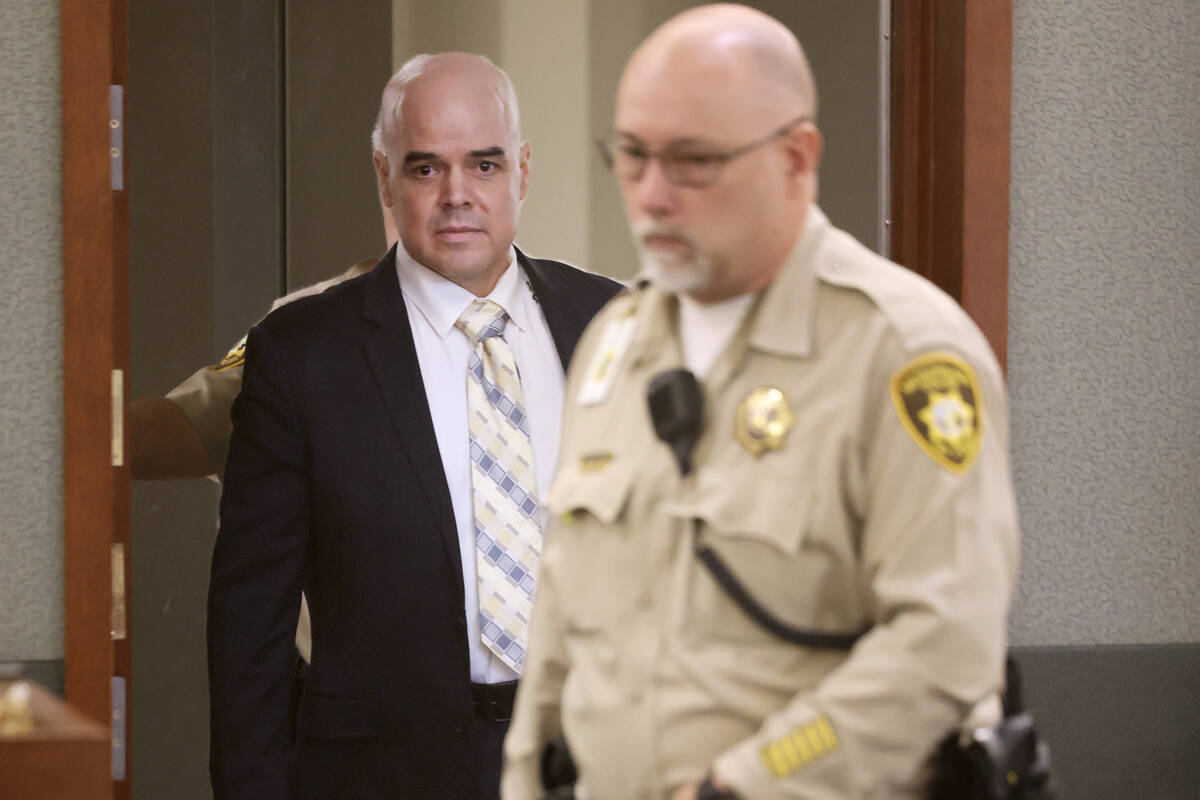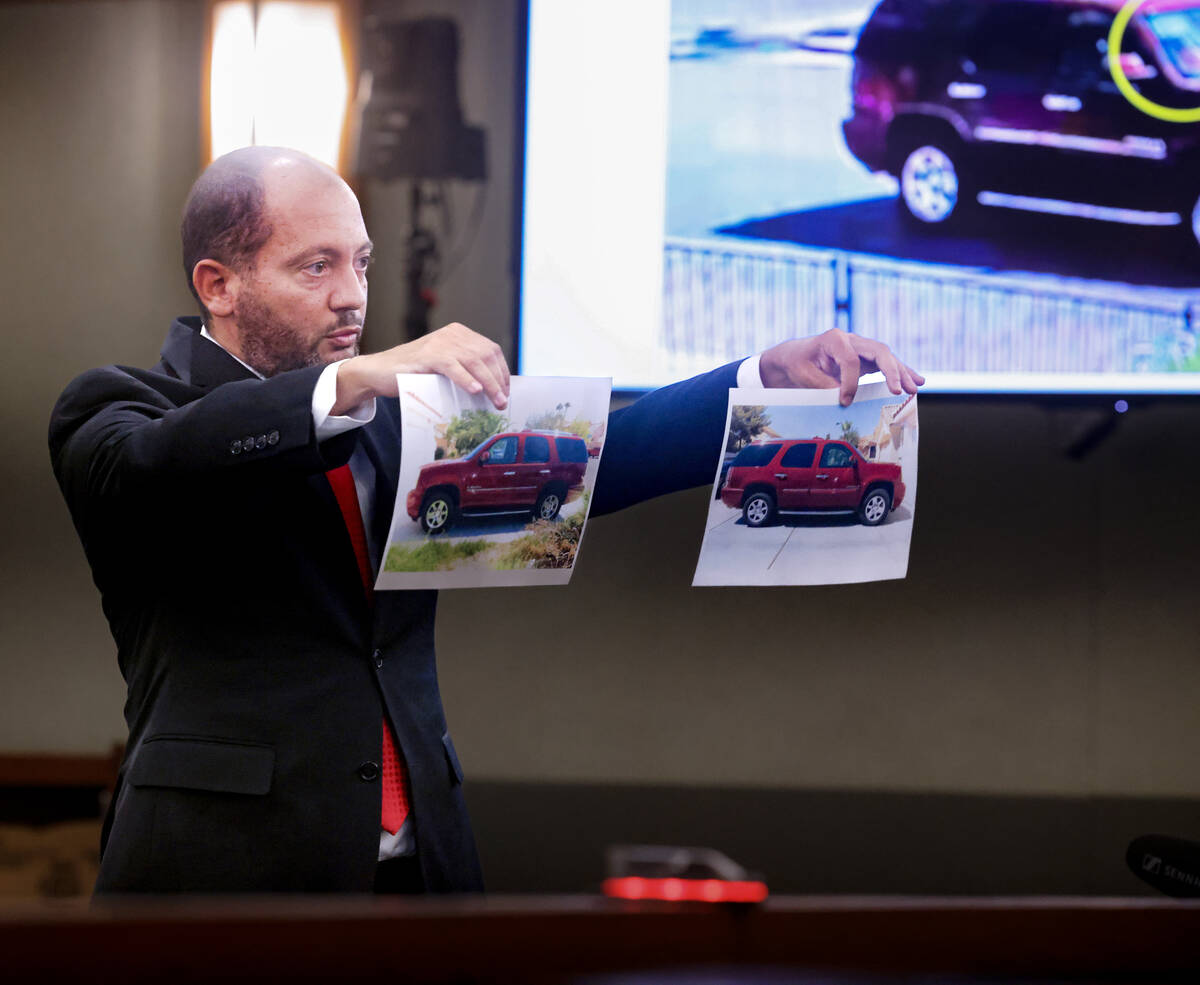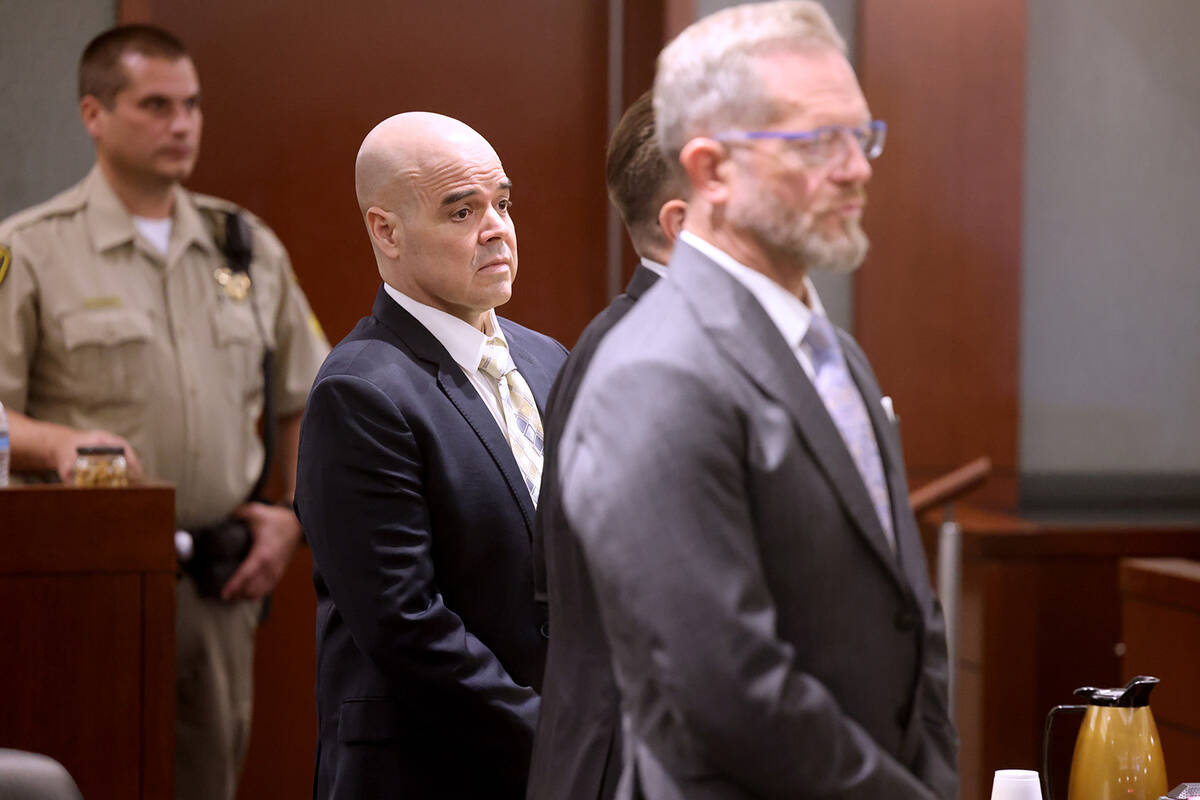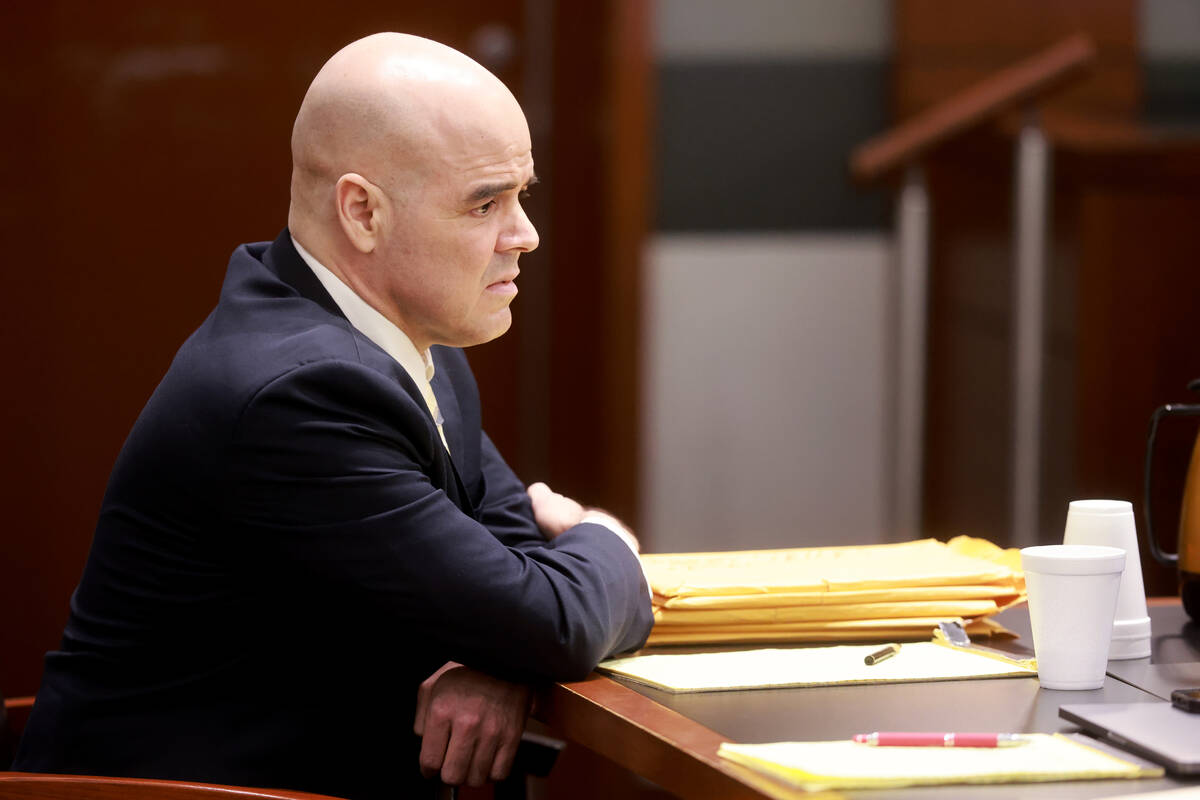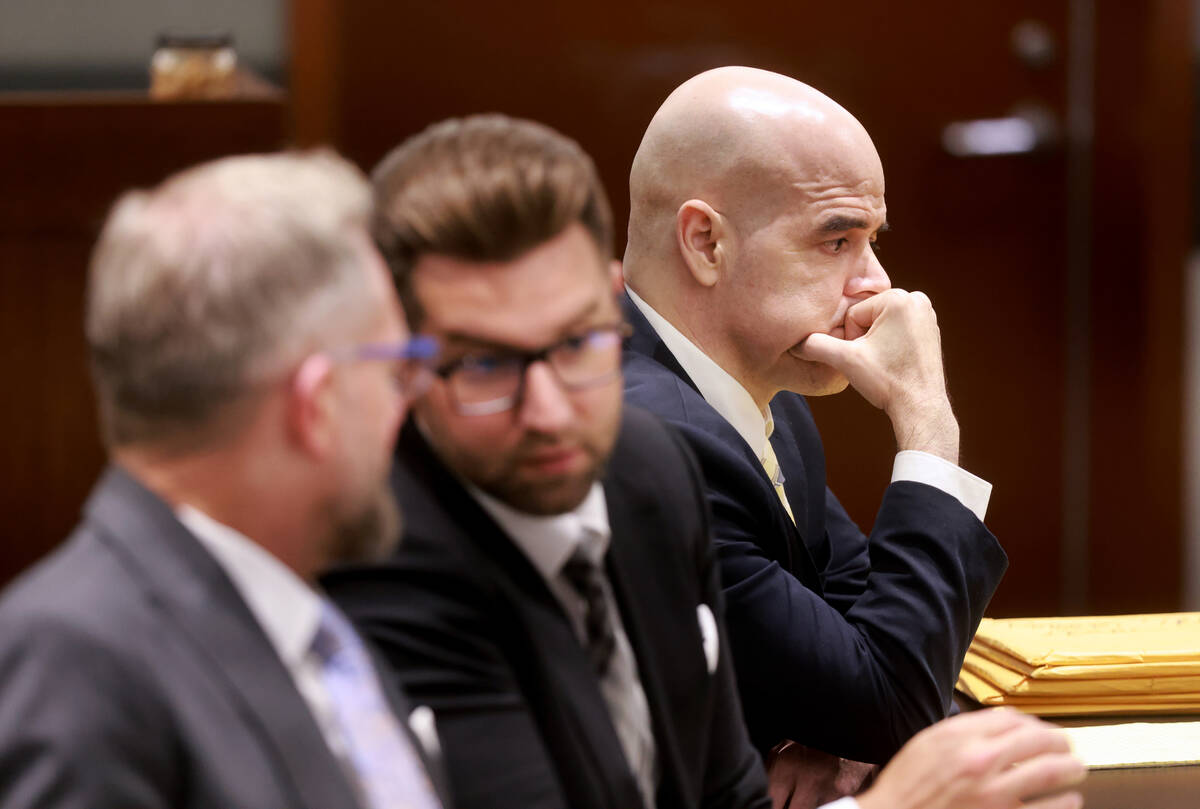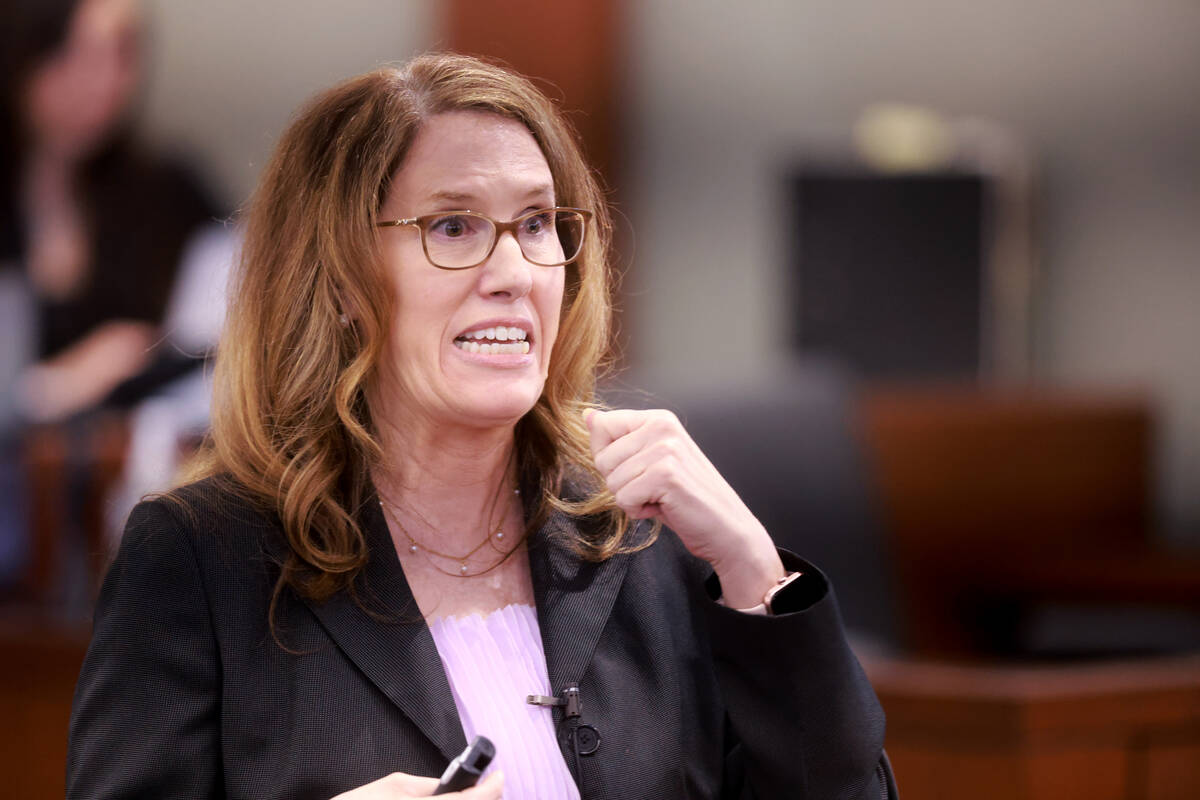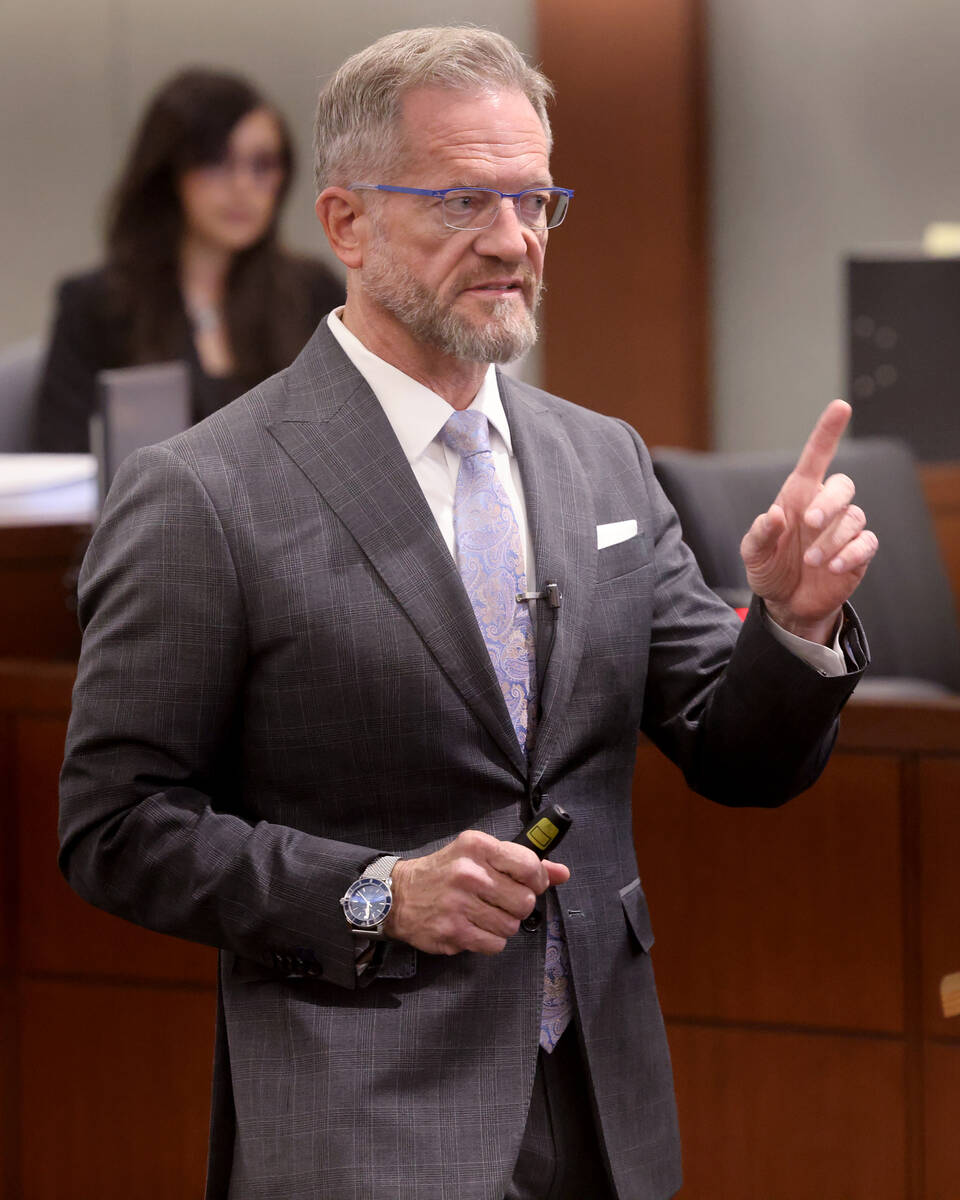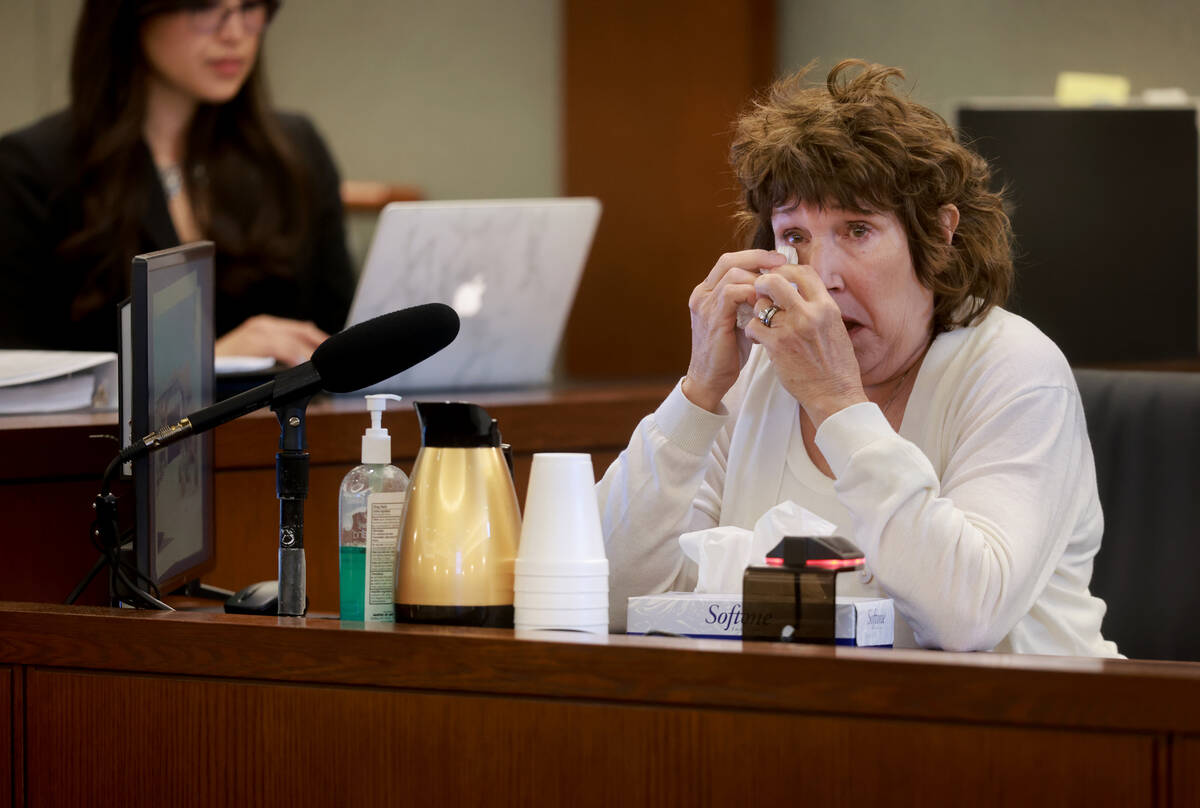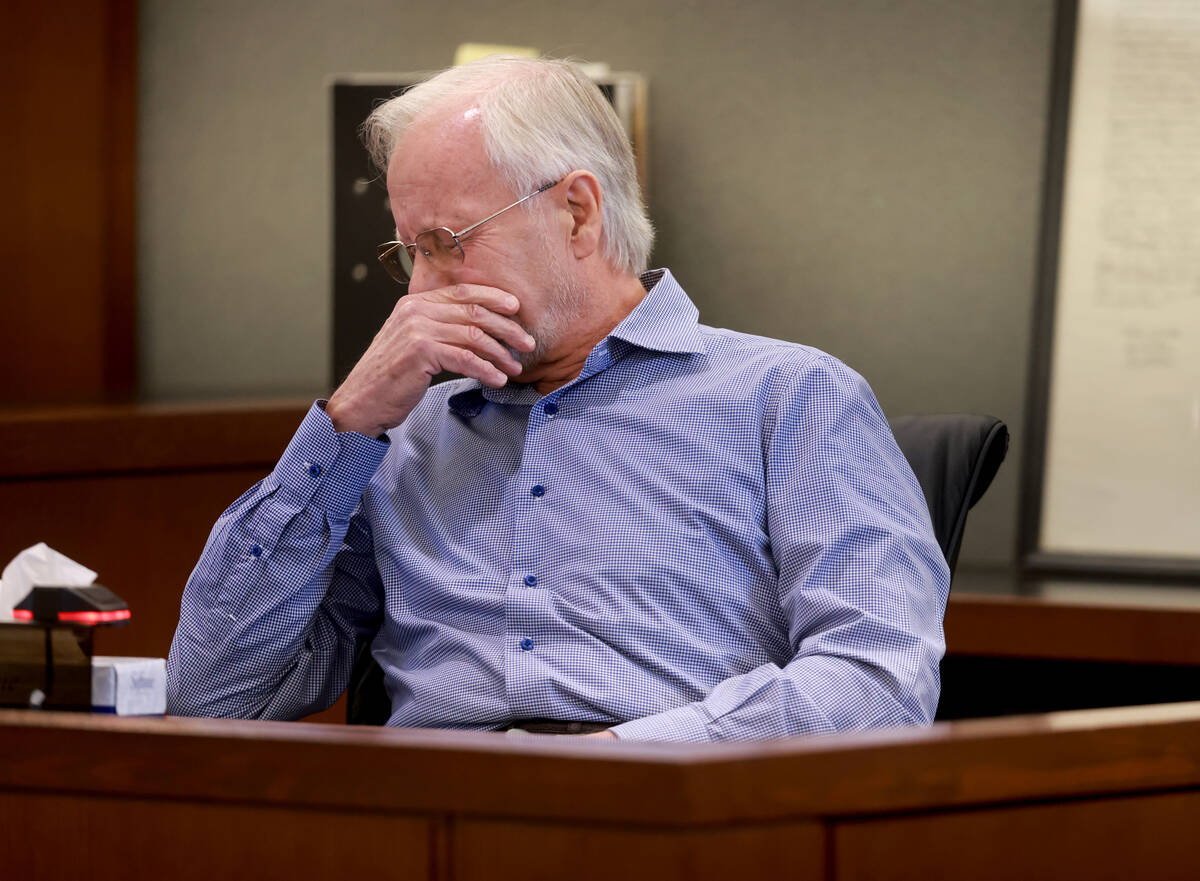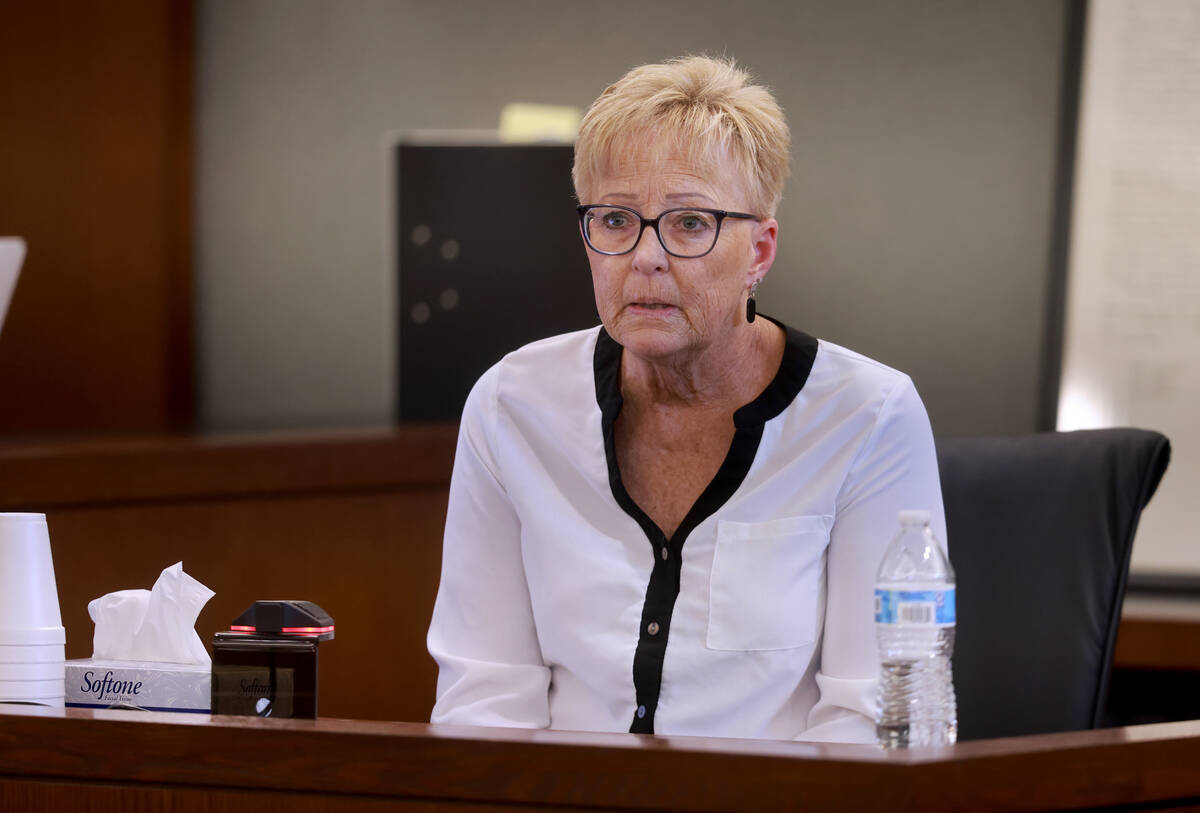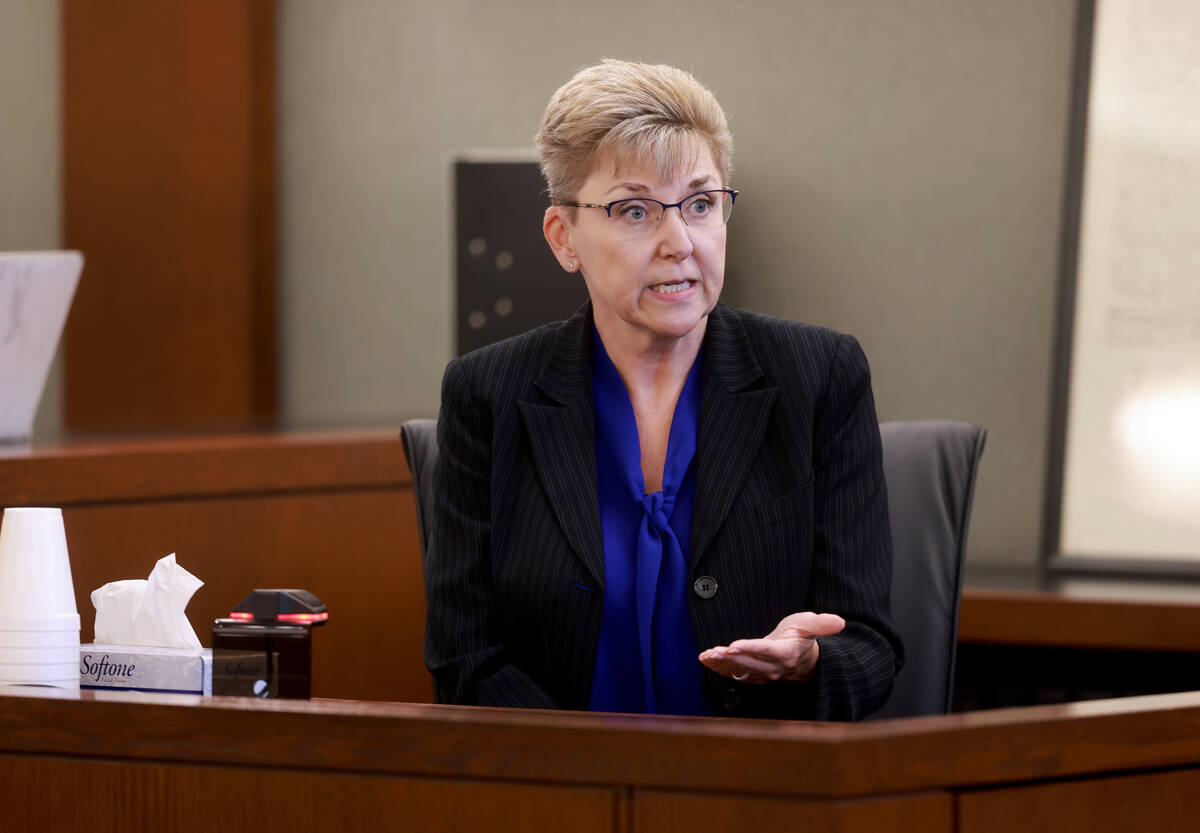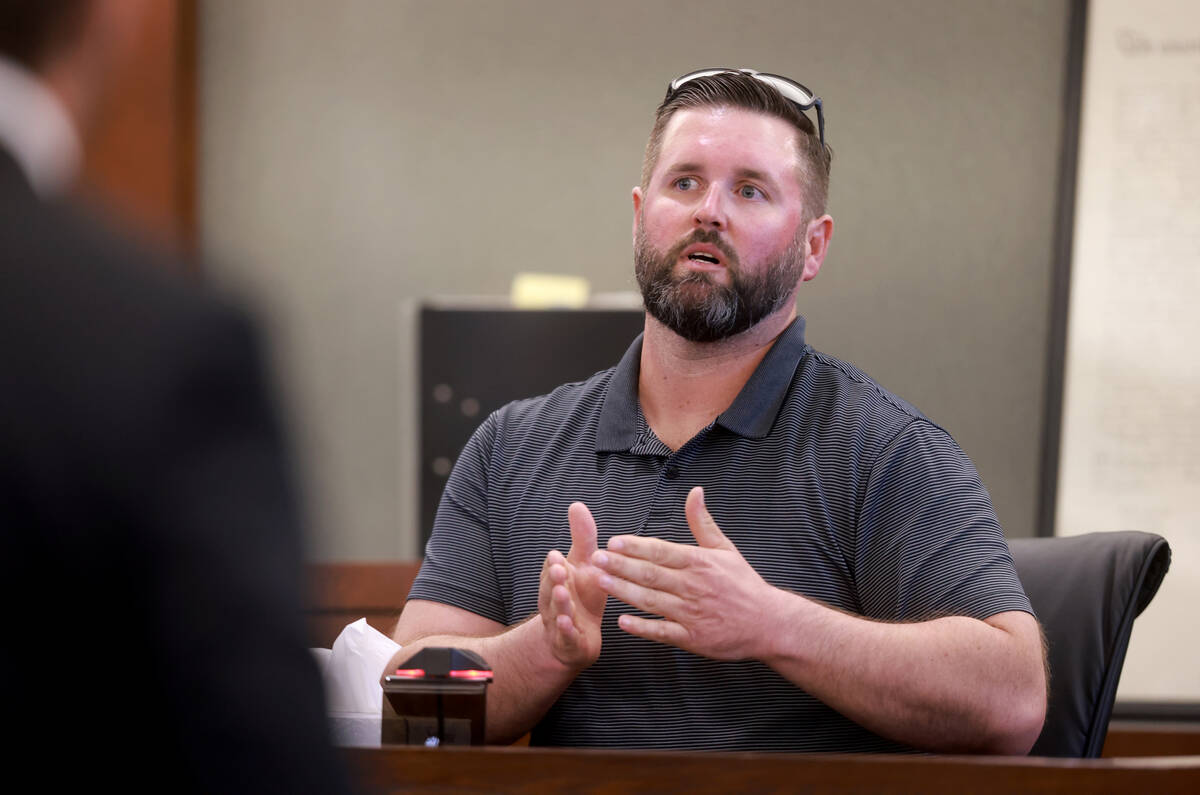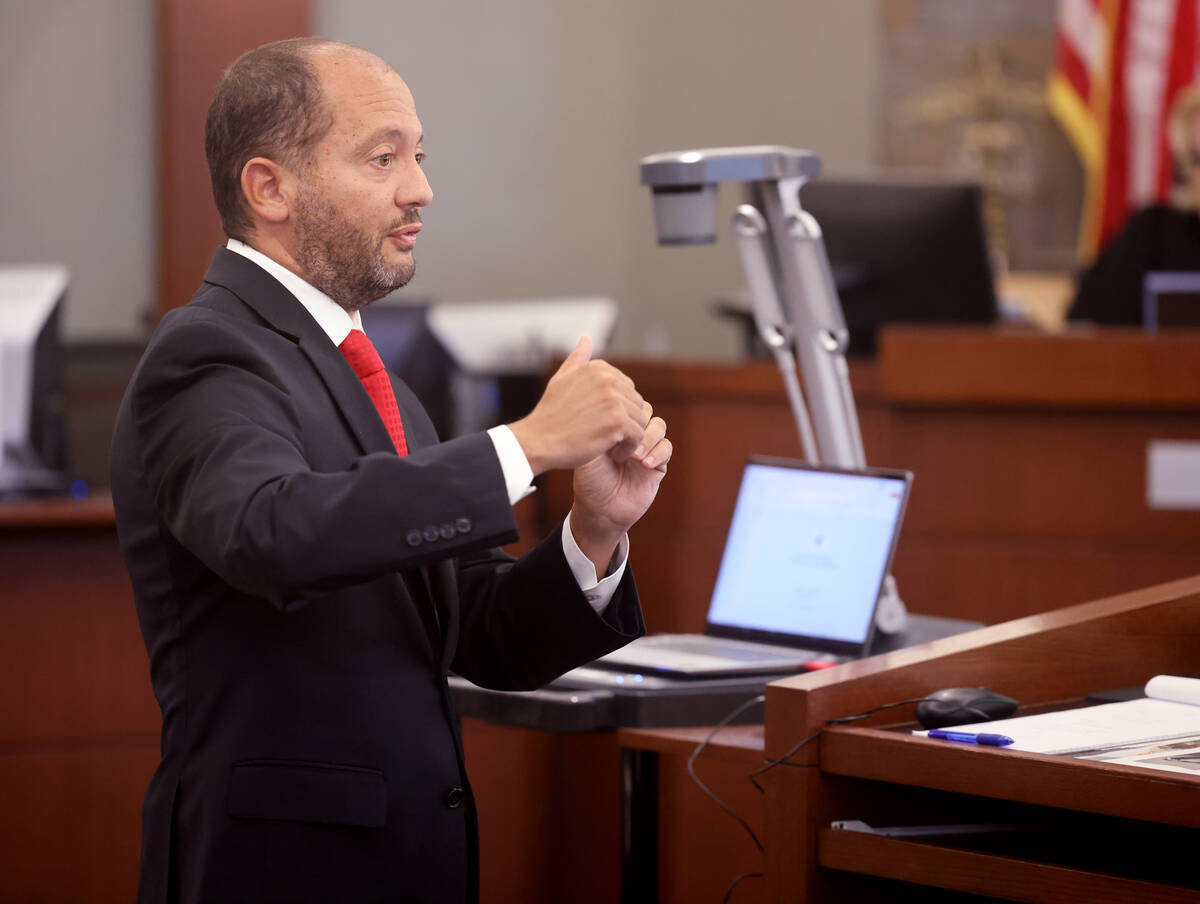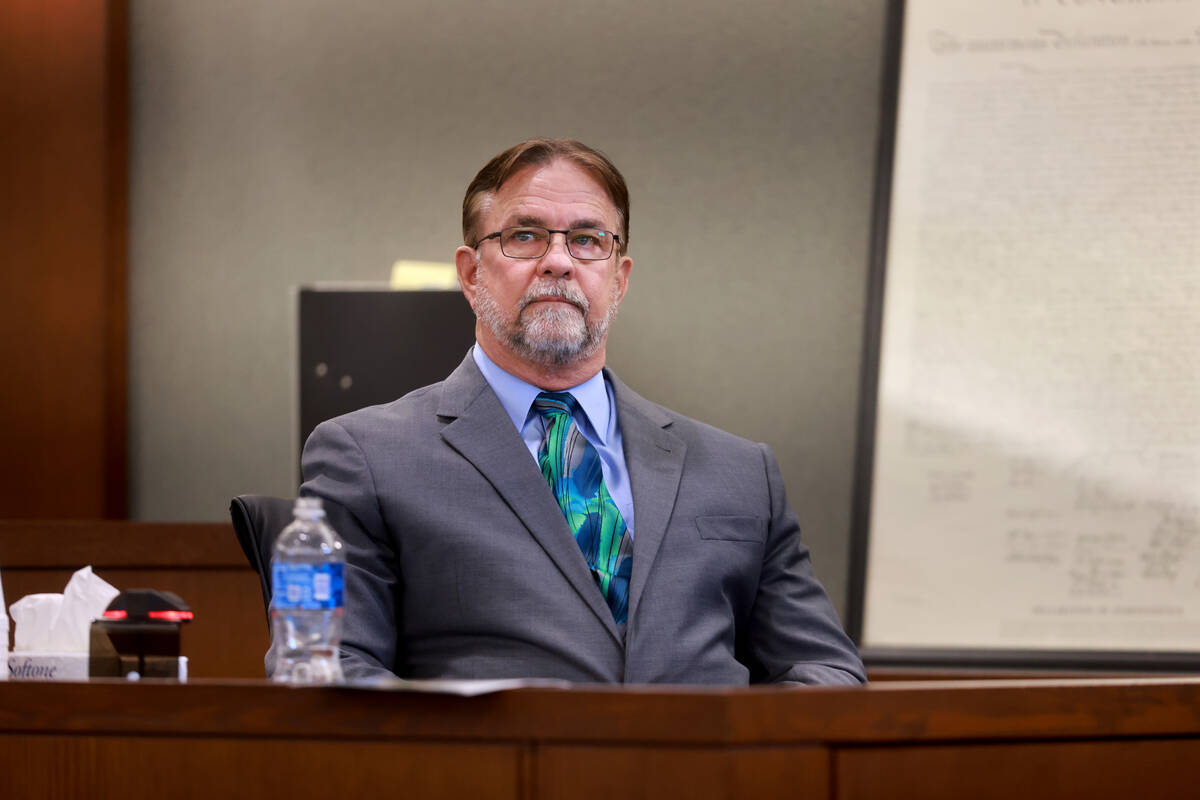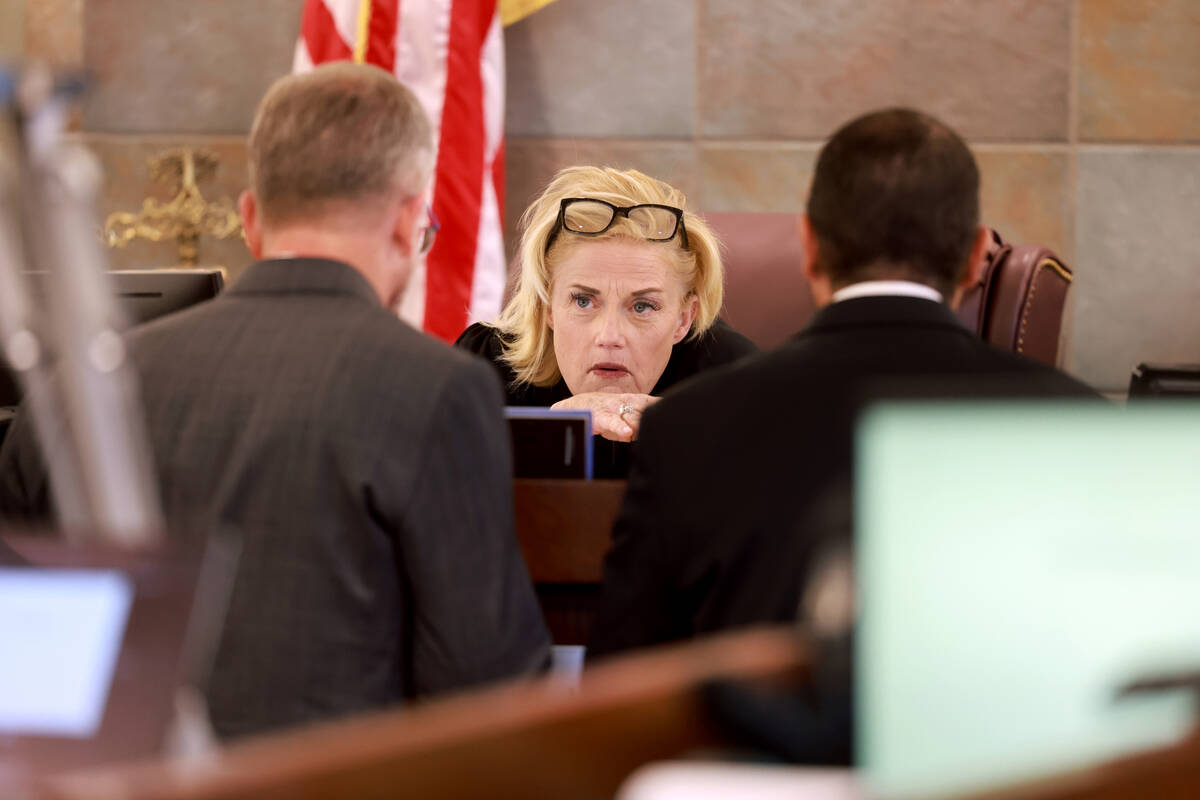Jury shown surveillance footage, first witnesses take stand in Telles trial
A Las Vegas jury was shown extensive video surveillance documenting a suspect’s vehicle before and after the killing of Las Vegas Review-Journal investigative reporter Jeff German as testimony in the murder trial began Wednesday.
Much of the footage had not been previously released to the public. Former Metropolitan Police Department detective Cliff Mogg testified that he and more than 20 other detectives searched for footage from businesses and homes in the area surrounding the crime scene and the suspect’s home.
Prosecutors have accused Robert Telles, 47, of stabbing and killing German, 69, on Sept. 2, 2022, over articles German had written about his conduct as an elected official. Telles was charged with “lying in wait” for German outside of the reporter’s home, on the 7200 block of Bronze Circle, near Tenaya Way and Vegas Drive, Chief Deputy District Attorney Pamela Weckerly said during the trial’s opening statements on Wednesday.
A neighbor’s video surveillance showed German confronting someone on the side of the house. The video, taken from across the street, showed a distant image of German appearing to struggle with the person.
While being questioned by Chief Deputy District Attorney Christopher Hamner, Mogg testified that a maroon Yukon Denali left Telles’ neighborhood just before 9:15 a.m. on Sept. 2, 2022, and started driving around German’s neighborhood over an hour later.
The vehicle did not have license plates while driving in German’s neighborhood, but Mogg testified that the same car was later seen with license plates driving back toward Telles’ home.
Mogg said he saw a car in Telles’ driveway matching the Yukon’s description. Hamner held up photos for the jury, showing that both the suspect’s vehicle and the vehicle in Telles’ driveway had similarly tinted windows, and a “light spot” on the front windshield. The assailant’s vehicle also was photographed with both the passenger and driver’s visor hanging down.
“Everything that I had seen on the surveillance video was similar to Mr. Telles’ vehicle, including the fact that that passenger visor was still down,” Mogg testified.
Telles was seen shaking his head as Mogg talked.
Eight witnesses were questioned Wednesday, after opening statements from both sides. The trial is expected to resume at 11 a.m. Thursday with the defense questioning Mogg.
Telles has maintained he was framed for German’s killing. Prosecutors have pointed to “overwhelming” evidence against Telles, including his DNA found underneath German’s fingernails. The trial began on Monday with jury selection, a process that ended Tuesday evening when seven men and seven women, including two alternates, were selected for the jury.
Opening statements
During opening statements, Weckerly detailed stories German had written about Telles, showing interactions between the two and highlighting voicemails and messages they had exchanged during German’s reporting. At one point, she played a Review-Journal video for the jury, showing part of an interview German had conducted with Telles.
As Weckerly later showed the jury graphic pictures of German’s body, Telles squinted at a monitor on the defense table.
The prosecutor also told jurors that before the slaying, Telles had downloaded Google images of German’s house and had searched for information on German’s car. Weckerly also noted the absence of signs of forced entry at German’s home.
Weckerly said that surveillance footage had captured the maroon SUV “meandering” around German’s neighborhood before he was attacked.
“In the end, this case isn’t about politics, it’s not about alleged inappropriate relationships, it’s not about who’s a good boss or who’s a good supervisor or favoritism at work,” she said. “It’s just about murder. And at the end of the presentation of the evidence, we’ll ask you to hold him responsible for his conduct.”
The courtroom was packed on Monday morning with reporters, attorneys, and German’s family members as opening statements began.
Defense attorney Robert Draskovich focused on Telles as a public official trying to expose corruption within his office. Draskovich tried to cast doubt that Telles had killed German, saying cellphone data did not place Telles at the reporter’s home the day he was slain, and that “losing a job is not a motive for murder.”
“These articles were not a motive for a murder,” Draskovich said. “And we all know killing a journalist does not kill a story. Killing Jeff German does not kill the investigation or the stories concerning Mr. Telles.”
Telles nodded his head up and down as Draskovich addressed the jury.
The defense attorney pointed to a police investigation involving a housing kickback scheme. He alleged that a detective in charge of that investigation, who was initially contacted by Telles, had switched gears and instead began surveillance on Telles.
Draskovich alleged that the detective inserted himself into the homicide investigation and pointed fingers at Telles.
Inside Telles’ home, police found cut-up pieces of a hat and a white tennis shoe, which prosecutors said matched the clothing worn by the assailant. Draskovich argued that German’s blood was not found on the items. According to testimony given to a grand jury in 2022, blood was found on the shoes, but German’s DNA was not identified — some samples were not sufficient for DNA testing, court records show.
Draskovich attacked the pieces of evidence during his opening statements.
“There is no rational explanation as to why the hat and shoes were cut into pieces, except that they would be easier to conceal and plant,” he said.
At the end of his opening statement, Draskovich played two voicemails found on German’s phone.
“Jeff German was no stranger to making people upset,” Draskovich said. “He made a lot of people, far more able people, far more violent people, upset with him. He often had people threatening him… He was known for the boldness of his inquiries, taking on corrupt and violent targets through the course of his investigative journalism.”
The voicemails were full of cursing and contained threats from angry callers.
Draskovich argued that the police should have investigated “all avenues.”
‘Not natural’
Draskovich did not extensively question many witnesses on Wednesday. He questioned one crime scene analyst about the processes used to keep a crime scene secure, and he asked another analyst if she knew exactly which detectives were at Telles’ home during the execution of a search warrant.
Weckerly began her opening statements by telling jurors that on Sept. 2, 2022, German’s two neighbors spent all day concerned about him. The first witnesses called by the state were those same neighbors — Holly and Roy Bailey.
Both became emotional and started to cry as they described worrying about German not responding to their messages on Sept. 2, 2022, and then finding his body outside his home the next day.
Holly Bailey said she went into “shock” after her husband found German’s body and added that she started “praying over him, talking to him.”
“It was just very not natural,” she said. “It didn’t look like a natural death, I can tell you that right now.”
Attorneys have said the trial should last at least two weeks.
Contact Katelyn Newberg at knewberg@reviewjournal.com or 702-383-0240. Review-Journal assistant city editor David Ferrara contributed to this report.



